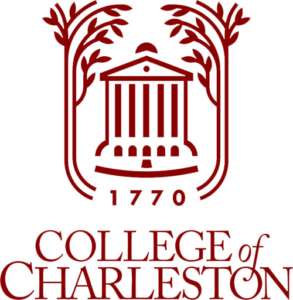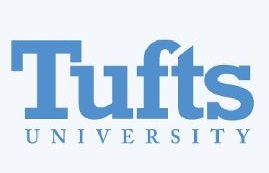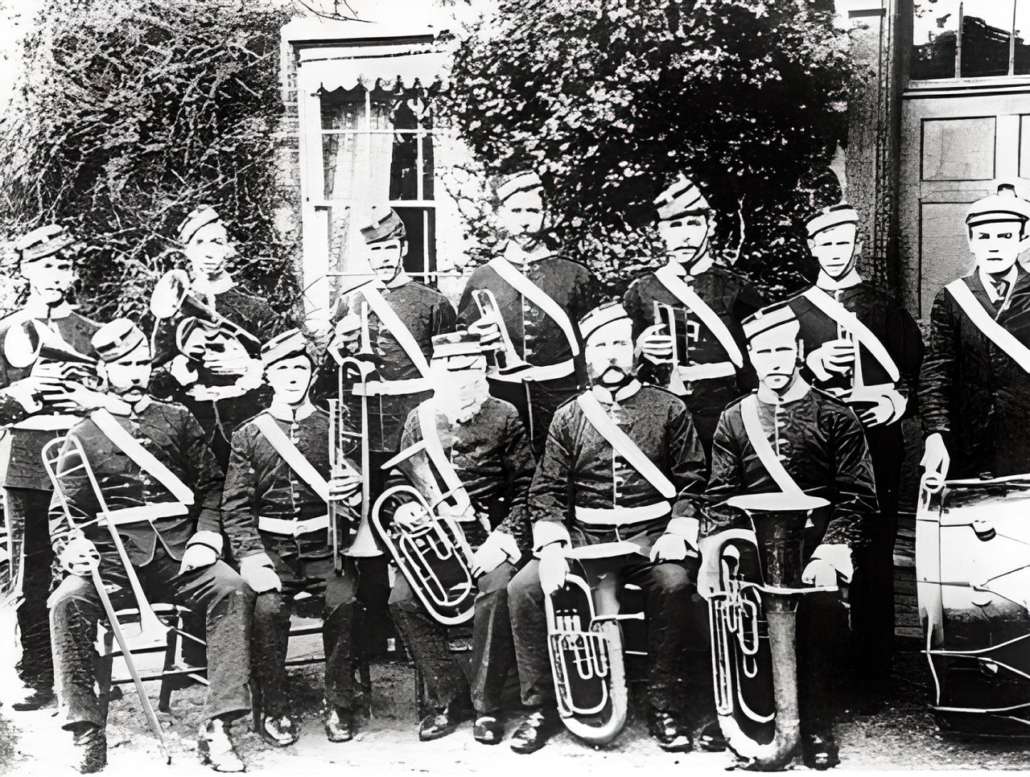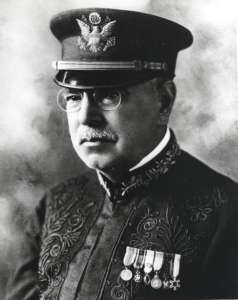TEAM PHOTO: Messalonskee grades 5/6 red football team
/0 Comments/in Messalonskee, Oakland, Photo, School News, Sports/by Website Editor
Front row, from left to right, 57 Tyler Fisher, 15 Chase Dempsey, 72 Landon Dunbar, 27 Kamden Hafford, 42 Landen Bolduc, and 77 Blake Bouchard. Second row, 11 Blake Tibbetts, 28 Trentyn Goodrich, 87 Joe Maheu, 82 Jordyn Goodrich, and 33 Peter McLaughlin III. Back row, Coach Peter McLaughlin Sr., and Coach Peter McLaughlin Jr. Absent Coach Nick Tibbetts. (photo by Missy Brown, Central Maine Photography)
New primary care doctor comes home to care for his community
/0 Comments/in Business News, Oakland/by Website EditorNorthern Light Primary Care, in Oakland, welcomes Gavin Hannon, DO, to its team. Dr. Hannon grew up in Oakland and has come back to care for his hometown community.
Dr. Hannon earned his medical degree from the University of New England College of Osteopathic Medicine, in Biddeford, and his undergraduate degree from the University of Southern Maine. He is board-certified in Family Medicine from the American Osteopathic Board of Family Physicians.
“I had always wanted to be a ‘small town doc’, a resource for the community, and I couldn’t think of a better place than Oakland to achieve that goal. Further than being able to achieve my professional goals, I know firsthand Oakland is a great place to build a life. The people are kind and caring; it’s the type of place where neighbors still help each other. We’re close to the mountains, we have the lakes, and I couldn’t imagine a better place to live and practice,” shares Dr. Hannon.
“My practice philosophy is to create a welcoming and relaxing atmosphere that promotes open and honest conversation so we can better work together to create an individualized treatment plan that is specific to a patient’s goals. It’s critical for patients to be engaged in their own healthcare,” says Dr. Hannon.
Dr. Hannon is welcoming patients 16 years and older. Please contact the office at 465-7342 to schedule an appointment. The practice is located at 74 Water Street, in Oakland. Learn more at inlandhospital.org.
Griffin Brown welcomed into the Honors College at the College of Charleston
/0 Comments/in Community, Messalonskee, Oakland, School News/by Website Editor  Griffin Brown, of Oakland, will attend the Honors College at the College of Charleston, in Charleston, South Carolina, starting this fall.
Griffin Brown, of Oakland, will attend the Honors College at the College of Charleston, in Charleston, South Carolina, starting this fall.
Brown joins a community of highly motivated Honors students who live and learn together while pursuing their own unique interests. Honors students at the College of Charleston benefit from personalized mentorship, access to specialized opportunities, and small, seminar-style classes. Students also participate in high impact experiences like faculty-led research, internships, and community engagement to help them maximize their time at college.
Brown is a graduate of Messalonskee High School, in Oakland, and plans to major in systems engineering at the College of Charleston.
Bella Wallingford named to the dean’s list at Tufts University
/0 Comments/in Oakland, School News/by Website Editor Bella Wallingford, of Oakland, class of 2026, was named to the dean’s list at Tufts University, in Medford, Massachusetts, for the fall 2022 semester.
Bella Wallingford, of Oakland, class of 2026, was named to the dean’s list at Tufts University, in Medford, Massachusetts, for the fall 2022 semester.KVCOG schedules household hazardous waste pickup dates
/0 Comments/in Belgrade, Bingham, Canaan, Central ME, Community, Fairfield, Madison, Oakland, Skowhegan, Waterville/by Website Editor The Kennebec Valley Council of Governments, based in Fairfield, plans to host Household Hazardous Waste Collection Days in October in Kennebec and Somerset counties.
The Kennebec Valley Council of Governments, based in Fairfield, plans to host Household Hazardous Waste Collection Days in October in Kennebec and Somerset counties.
Skowhegan, Anson, Bingham, Canaan and Madison will collect from 9 a.m. to noon, Saturday, Oct. 7, at the Skowhegan Transfer Station, 29 Transfer Station Drive. This is open to residents of those towns, who must call their own town office to schedule a time slot (Skowhegan, 207-474-6902; Anson, 207-696-3979; Bingham, 207-672-5519; Canaan, 207-474-8682; Madison, 207-696-3971).
Winslow, Belgrade, Clinton, Fairfield, Oakland and Waterville will collect from 8 a.m. to noon, Saturday, Oct. 21, at Winslow Public Works, 135 Halifax St. Residents must call their municipal office to schedule a slot (Winslow, 207-872-2776; Belgrade, 207-495-2258; Clinton, 207-426-8322; Fairfield, 207- 453-7911; Oakland, 207-465-7357; Waterville, 207-680-4200).
Those who don’t have an appointment slot made with their town will not be able to drop off that day.
Many chemicals commonly used around the home are hazardous, either alone or when combined with other chemicals, and need to be disposed of by professionals trained to handle hazardous materials, according to a KVCOG news release.
Improper disposal of these materials can disrupt the function of sewage treatment plants or private septic systems, contaminate ground water, and harm animals and residents. Items that are difficult to recycle or dispose of — such as electronic waste, batteries, paint, anti-freeze, chemical cleaners, yard chemicals, old fuels, oils and mercury thermostats — many of which can also become harmful if left unmonitored.
The council will have local law enforcement officials on hand in Winslow and Skowhegan to collect and properly dispose of any pharmaceuticals that residents want to bring in.
Bodhi Littlefield named to Ohio University’s spring 2023 dean’s list
/0 Comments/in Oakland, School News/by Website Editor Ohio University Patton College of Education student Bodhi Littlefield, of Oakland, has been named to the Spring 2023 dean’s list, in Athens, Ohio.
Ohio University Patton College of Education student Bodhi Littlefield, of Oakland, has been named to the Spring 2023 dean’s list, in Athens, Ohio.
Up and down the Kennebec Valley: Music in the Kennebec Valley – Part 3
/0 Comments/in Augusta, Central ME, China, Kennebec County, Local History, Oakland, Up and Down the Kennebec Valley, Vassalboro/by Mary Growby Mary Grow
Band music
Another type of music in the central Kennebec Valley from early days of European settlement was band music. It was often, but especially in later years not inevitably, associated with military organizations; and like other forms of music, got limited attention in most local histories.
* * * * * *
James North, in his Augusta history, sometimes mentioned parade music, presumably provided by a band, as in his description of former president George Washington’s funeral procession in Augusta on Feb. 22, 1800.
North wrote that the procession was headed by a military escort. It included an infantry company, followed by musicians with “drums muffled, instruments in mourning,” followed by an artillery company.
By 1805, North wrote, Augusta had two military companies, and a group of young men persuaded the legislature (still in 1805 the Massachusetts General Court) to authorize a light infantry company.
The Augusta Light Infantry, which appears frequently in North’s history, was organized in the spring of 1806. North listed its officers and its musicians: fifer Stephen Jewett (the same Stephen Jewett who played the bass viol in church beginning in 1802? – see the July 27 issue of The Town Line) and drummer Lorain Judkins.
Some of the women connected with infantry members created and presented a company standard, with the motto “Victory or Death.” North described the Sept. 11, 1806, presentation as followed by a parade and a ball (presumably at least the ball and probably the parade included musicians).
By the time the Light Infantry was part of the local Federalist party’s July 4 parade in 1810, there was definitely a band. North wrote that its members politely stopped playing as the parade passed the house where Judge Nathan Weston was addressing the rival Democratic party celebration.
Another association between music and the military is the lists of men who fought in the War of 1812. Kennebec County historian Henry Kingsbury and many local historians listed soldiers (in 1812 and later wars) by name and rank, including musicians.
Most 1812 companies had either two or three musicians, though Kingsbury listed only one apiece for two of Vassalboro’s companies. The majority are described unspecifically as “musicians,” but Kingsbury mentioned a drum major and a fife major from Augusta.
By July 4, 1832, North again described two separate parades by two political parties, with multiple bands and military units. The National Republicans’ parade included “the Hallowell Artillery and Sidney Rifles, each with a band of music,” and the Hallowell and Augusta band, which he said was “one of the best in the State.” The Democrats’ parade included some of the Augusta Light Infantry and a band from Waterville.
There was an Augusta band in 1854, when Augusta city officials (the town became a city in 1849) decided the annual July 4 celebration should include recognition of the 100th anniversary of the building of Fort Western. Events included an extremely elaborate parade, with the Augusta Band providing the music.
And on April 18, 1861, as the Civil War began, North wrote that “the Augusta Band, playing patriotic airs” (including Yankee Doodle), led Augusta’s Pacific Fire Engine Company as members marched to the homes of leading citizens to ask their reactions to the rebellion.
(Their visits started with Governor Israel Washburn, Jr., and included his predecessor, former Governor Lot M. Morrill. North commented that Republicans and Democrats alike expressed support for the federal government.)
By August 1863, either there was another band or the Augusta Band had a second name. North described the return of two volunteer regiments whose members’ nine-months enlistments were up.
The 24th Regiment got to Augusta at 10:30 p.m. Aug. 6, by train; a large number of dignitaries and ordinary citizens and the Citizens’ Band escorted the soldiers to the State House for a welcome and a banquet (after which they slept on the State House floor, too exhausted to continue to Camp Keyes). The 28th arrived around noon Aug. 18; their welcoming parade included the Citizens’ Band and the Gardiner Brass Band, and their refreshments were served on the lawn south of the State House.
In 1864, according to North, it was the Augusta Band that on June 3 escorted the first trainload of wounded men to the new military hospital at Camp Keyes, in Augusta.
* * * * * *
In the village of Weeks Mills, in the southern part of the town of China, there was in the latter half of the 19th century an all-male brass band that the China history says “was more a marching band than a dance band,” because its concerts were mostly outdoors.
Sometimes there were concerts in “a town public hall” that was the second floor of a building on the east side of the Sheepscot, north of Main Street (which is called Tyler Road on the contemporary Google map). There was also a bandstand, “with a flagpole,” that band members built at the junction of North Road (now Dirigo Road, perhaps?).
Quoting a former resident named Eleon Shuman, some of whose family were in the band, the history adds, “Few of the band members could read music, and the band director transcribed their pieces into a simpler notation called the tonic sol fa method which they could follow.”
Oakland also had a town band by the late 1880s. In her history of Sidney, Alice Hammond wrote that the organizers of the 1890 Sidney fair spent most of their money to hire the Oakland Band.
She explained that in the absence of television and Walkmans (never mind smartphones), “To hear the band playing as you strolled around the fair grounds, or went into the hall and sat down to take a break was a treat.”
There were also dances some afternoons – “Anyone who wished to dance paid for one dance at a time.” In 1890, the fair was not lighted, so there was no evening music or dancing.
Hammond’s history included reproductions of two posters.
One advertised a Feb. 5, 1892, exhibition of “The marvels of the modern phonograph,” which would “Talk, Laugh, Sing, Whistle, Play on all sorts Instruments including Full Brass Band.” After Professor R. B. Capen, of Augusta, finished his demonstration, there would be a Grand Ball, with music by Dennis’ Orchestra, Augusta, for dancing until 2 a.m.
The second poster announced an Aug. 15, 1898, Grand Concert by the Sidney Minstrels. The program included vocal and instrumental (guitar, banjo and tamborine solos); it was followed by a “social dance” with music by Crowell’s Orchestra.
John Philip Sousa’s inaugural playing of The Stars and Stripes Forever, in Augusta
An on-line site called Military Music says John Philip Sousa’s The Stars and Stripes Forever was played for the very first time by Sousa’s Band in the new (opened in 1896) city hall, in Augusta, Maine, on May 1, 1897. Because at that time the march had no title, some historians inaccurately date the first performance to a May 14 concert in Philadelphia.
Contributor Jack Kopstein wrote that Sousa composed the march as he was returning from Europe late in 1896. His original version called for “Piccolo in D-flat, Two Oboes, Two Bassoons, Clarinet in E-flat, Two Clarinets in B-flat (1-2), Alto saxophone, Tenor Saxophone, Baritone Saxophone, Three Cornets (1-3), 4 Horns in E-flat (1-4), Three Trombones (1-3), Euphonium, Tuba, Percussion.”
Augusta’s Museum in the Streets (on line) says by May 1, 1897, Sousa’s Band was “the most famous in the land,” and Sousa was “America’s ‘March King.'” The afternoon concert presented some of his earlier compositions; “Sousa’s band enthralled the Augusta audience with spirited music, and his first encore was a new untitled march” – the one that became The Stars and Stripes Forever.
On-line sites give different versions of the words for the march. The one attributed to Sousa begins, “Let martial note in triumph float / And liberty extend its mighty hand….”
Your writer’s personal favorite begins “Be kind to your web-footed friends / For a duck may be somebody’s mother.” (The web attributes these words to radio comedian Fred Allen [1894-1956].)
Augusta’s 1896 city hall was designed by John Calvin Spofford (Nov. 25, 1854 – Aug. 19, 1936), a Maine-born, Boston-based architect well-known for designing public buildings in New England. In addition to municipal offices, the building included a city auditorium.
Kopstein, writing in 2011, said the building served its municipal function until 1987; it then became an assisted living facility. An on-line description of the Inn at City Hall says it now has “31 apartments with its historic decor preserved throughout the complex.”
Main sources
Grow, Mary M., China Maine Bicentennial History including 1984 revisions (1984)
Hammond, Alice, History of Sidney Maine 1792-1992 (1992)
Kingsbury, Henry D., ed., Illustrated History of Kennebec County Maine 1625-1892 (1892)
North, James W., The History of Augusta (1870)
Websites, miscellaneous.
Matthew Parent named to Clarkson University’s dean’s list
/0 Comments/in Oakland, School News/by Website Editor Matthew G. Parent, of Oakland, a sophomore majoring in software engineering, was named to the dean’s list for the Spring 2023 semester, at Clarkson University, in Potsdam, New York. .
Matthew G. Parent, of Oakland, a sophomore majoring in software engineering, was named to the dean’s list for the Spring 2023 semester, at Clarkson University, in Potsdam, New York. .Katelyn Robertson earns a spot on the dean’s list at Coastal Carolina University
/0 Comments/in Oakland, School News/by Website EditorInteresting links
Here are some interesting links for you! Enjoy your stay :)Site Map
- Issue for April 3, 2025
- Issue for March 27, 2025
- Issue for March 20, 2025
- Issue for March 13, 2025
- Issue for March 6, 2025
- Issue for February 27, 2025
- Issue for February 20, 2025
- Issue for February 13, 2025
- Issue for February 6, 2025
- Issue for January 30, 2025
- Issue for January 23, 2025
- Issue for January 16, 2025
- Issue for January 9, 2025
- Issue for January 2, 2025
- Issue for December 19, 2024
- Issue for December 12, 2024
- Issue for December 5, 2024
- Issue for November 28, 2024
- Issue for November 21, 2024
- Issue for November 14, 2024
- Issue for November 7, 2024
- Issue for October 31, 2024
- Issue for October 24, 2024
- Issue for October 17, 2024
- Issue for October 10, 2024
- Issue for October 3, 2024
- Sections
- Our Town’s Services
- Classifieds
- About Us
- Original Columnists
- Community Commentary
- The Best View
- Eric’s Tech Talk
- The Frugal Mainer
- Garden Works
- Give Us Your Best Shot!
- Growing Your Business
- INside the OUTside
- I’m Just Curious
- Maine Memories
- Mary Grow’s community reporting
- Messing About in the Maine Woods
- The Money Minute
- Pages in Time
- Review Potpourri
- Scores & Outdoors
- Small Space Gardening
- Student Writers’ Program
- Solon & Beyond
- Tim’s Tunes
- Veterans Corner
- Donate






